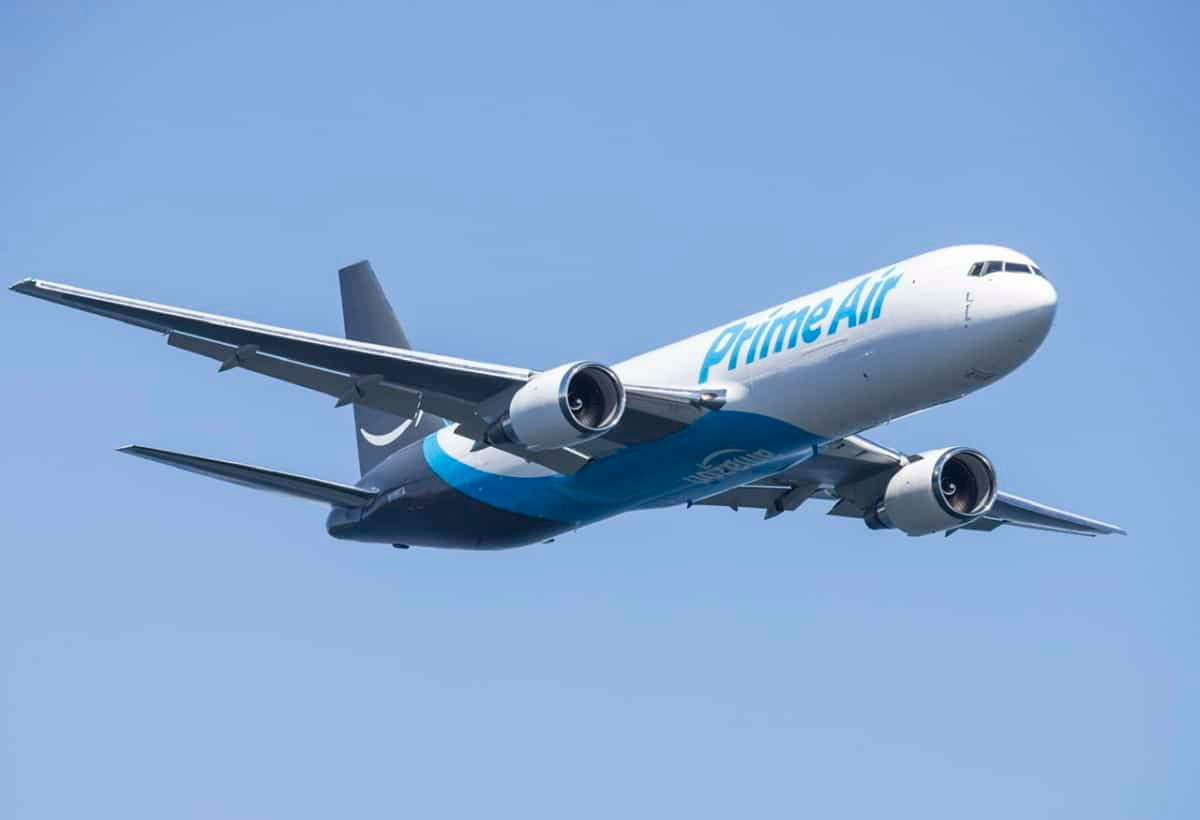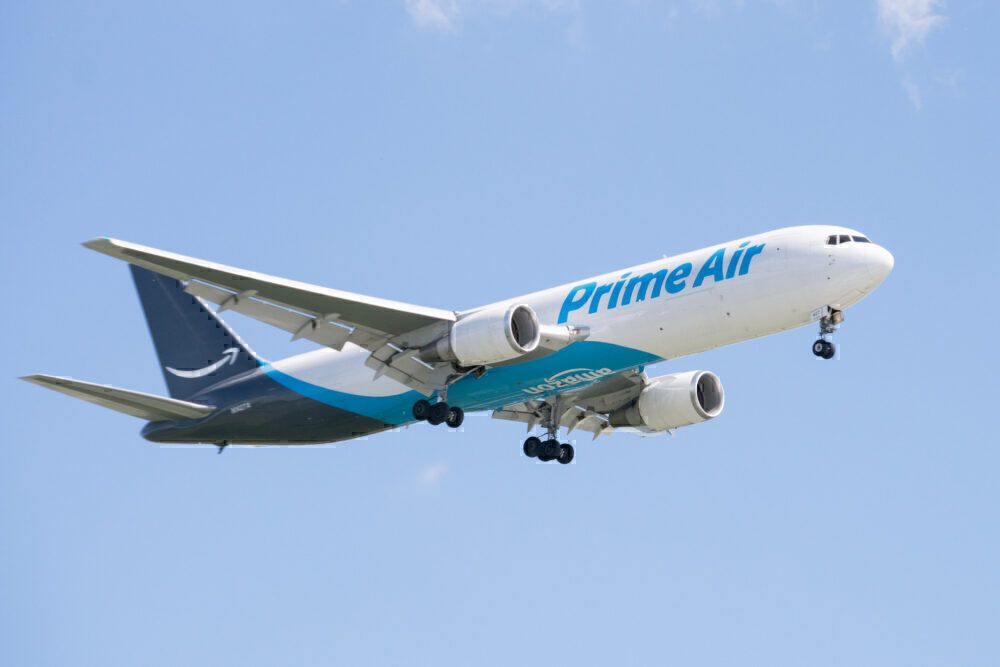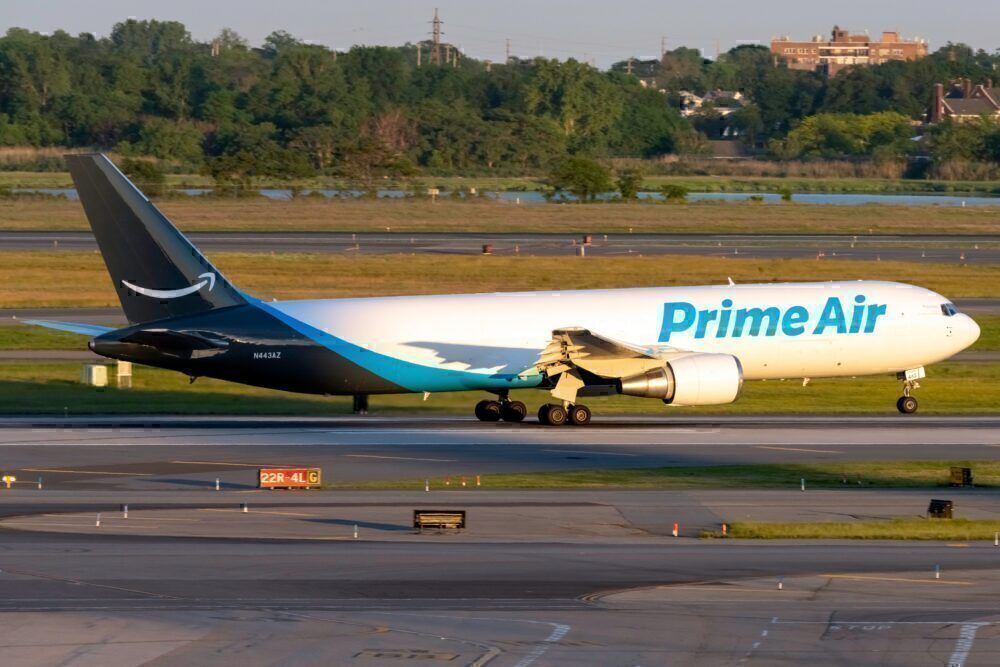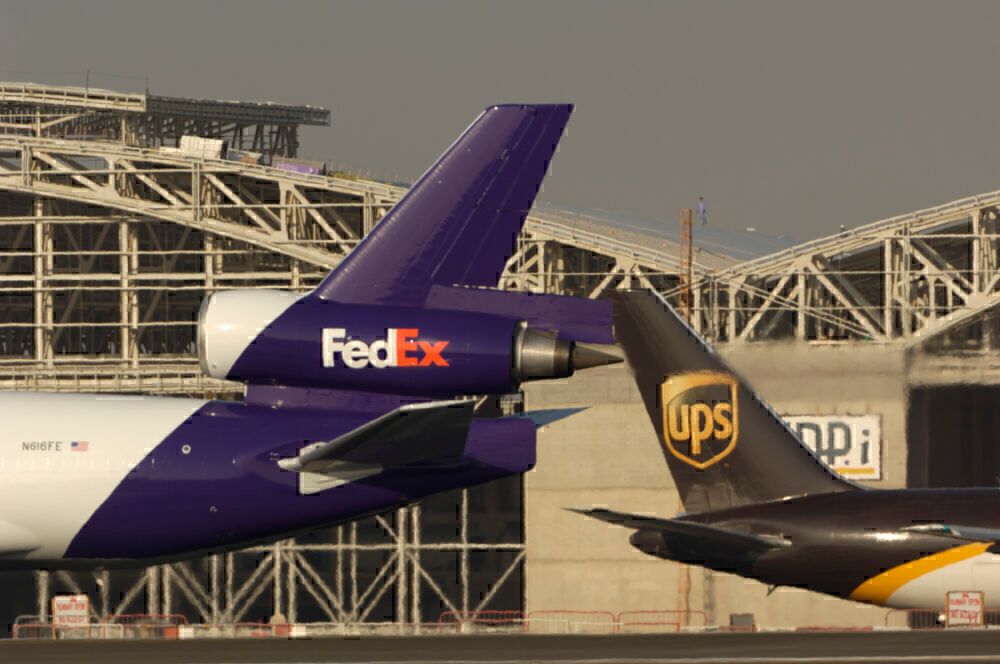US logistics giant Amazon has recently made moves to significantly expanded its airfreight operations. Over the last few months, the company has begun purchasing Boeing 767 aircraft outright, having previously leased them. But will this expansion mean that Amazon Air can directly compete with the likes of FedEx and UPS?
Prime time for such an expansion
2020 was a year in which cargo traffic became crucial in the face of the ongoing coronavirus pandemic. While passenger numbers dwindled, airfreight took on a key role in keeping the world connected.
Even passenger carriers got in on the act, using otherwise dormant aircraft to transport cargo and generate vital extra revenue. For example, in December, Virgin Atlantic announced that its cargo operations had grown by 50% in 2020.
Before the pandemic, Amazon was already transporting goods by air, using a sizeable all-Boeing fleet. However, its 737 and 767 freighters were all operated under leasing agreements with other airlines. This changed in September 2020, when it purchased its first Boeing 767 aircraft outright.
Stay informed: Sign up for our daily aviation news digest.
Re-registered as N503AZ, Planespotters.net reports that this 29-year-old aircraft had previously operated passenger flights for the likes of Qantas and WestJet. It flew to Tel Aviv, Israel in September to be converted for use as a cargo airliner.
Further purchases
It was recently announced that Amazon had become the largest employer in the US state of Washington. Boeing had previously held this title. In a move that corresponds to this recent growth, Amazon has purchased further 767 aircraft in recent weeks.
In late-December, it first declared that it would be giving three former Delta 767s a new lease of life as cargo airliners. Last week, Amazon also announced that a further four ex-WestJet 767s would be entering service with the company later this year. By this time, the number of ex-Delta aircraft purchased by Amazon had grown to seven. These aircraft are expected to enter service with Amazon in 2022.
A realistic competitor?
This significant expansion of Amazon's airfreight operations should see it become an increasingly important player in the cargo market. However, whether it will grow to such an extent that it challenges more established carriers such as UPS and FedEx is another matter.
Indeed, Amazon has a long way to go before its fleet can match that of its rivals. Indeed, the number of aircraft under the Amazon brand is yet to reach three figures. On the other hand, according to Planespotters.net, UPS operates 277 aircraft (263 currently active). Meanwhile, FedEx boasts a staggering 458 aircraft (446 active).
Furthermore, there is also a significant gap in the ages of Amazon's aircraft and those of its competitors. For example, FedEx's 97 Boeing 767s have an average age of just 3.4 years. UPS currently operates 77 767s, whose average age is somewhat higher, at 15.3 years.
Nonetheless, both examples are far younger than the second-hand models picked up by Amazon. The ex-Delta jets are each around 20 years old, with the former WestJet aircraft having all served for over 26 years.
This will mean that, going forward, Amazon will have a less sustainable 767 fleet than its competitors in terms of the number of years of active service that each aircraft has left. As such, it will likely need a far more significant, long-term investment in its fleet before it can realistically compete on a large scale with the likes of FedEx and UPS.
Do you think Amazon's expanded fleet will allow it to compete on the same level as UPS and FedEx? Let us know your thoughts in the comments.




